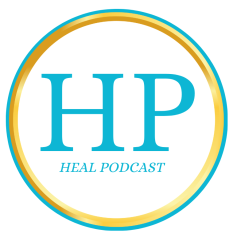Lucie Ritchie and Wei-Hao Wu are both passionate about helping you heal complex trauma. They are trained in NARM therapy.
What is NARM?
NARM, which stands for NeuroAffective Relational Model, is a powerful therapeutic approach that can significantly contribute to the healing and recovery of trauma survivors through the reorganization of the “Self,” and Self in relation to “other.” With its unique focus on the mind-body connection and relational dynamics, NARM offers a comprehensive framework to address the complex and often deep-seated impacts of trauma.
One of the key strengths of NARM lies in its emphasis on understanding how trauma affects both the body and the mind. Traumatic experiences often leave a profound imprint on our nervous system, shaping the way we perceive and interact with the world. NARM recognizes that trauma is not just a psychological issue but also a physiological one, and it works to restore the connection between the two. By helping trauma survivors develop a deeper awareness of their bodily sensations, emotions, and nervous system responses, NARM allows them to regain a sense of safety and agency within their own bodies.
Moreover, NARM recognizes that trauma is not solely defined by the traumatic event itself, but also by the disruptions it causes in our relationships and sense of self. Trauma survivors often experience difficulties in forming and maintaining healthy connections with others, leading to feelings of isolation and disconnection. NARM addresses these relational aspects of trauma, fostering a therapeutic alliance that is built on trust, empathy, and collaboration. Through this supportive relationship, NARM helps individuals develop healthier patterns of relating, rebuild trust, and create meaningful connections with othersNARM also places a strong emphasis on the present moment experience, encouraging trauma survivors to explore their current sensations, emotions, and thoughts. By doing so, it helps individuals shift their focus away from the past traumas and future worries, enabling them to ground themselves in the present and develop resilience. This approach allows survivors to develop a greater capacity to regulate their emotions, tolerate distress, and respond adaptively to triggering situations.
Furthermore, NARM recognizes the unique nature of each individual’s trauma experience, understanding that there is no one-size-fits-all approach to healing. It offers a flexible and individualized approach to therapy, tailoring interventions to meet the specific needs and goals of each trauma survivor. This personalized approach allows individuals to explore and process their trauma at their own pace, fostering a sense of empowerment and ownership over their healing journey.
In summary, NARM offers trauma survivors a multifaceted approach to healing by addressing both the mind-body connection and relational dynamics. By restoring the connection between body and mind, fostering healthy relationships, cultivating present-moment awareness, and providing personalized care, NARM equips trauma survivors with the tools and support they need to heal, grow, and reclaim their lives.




